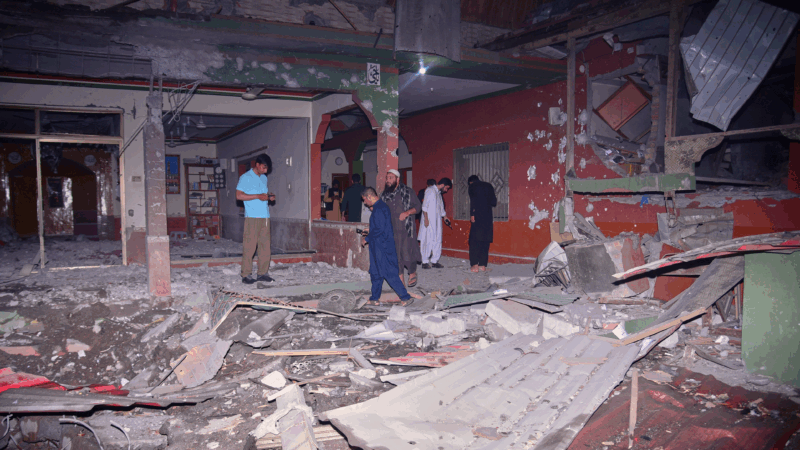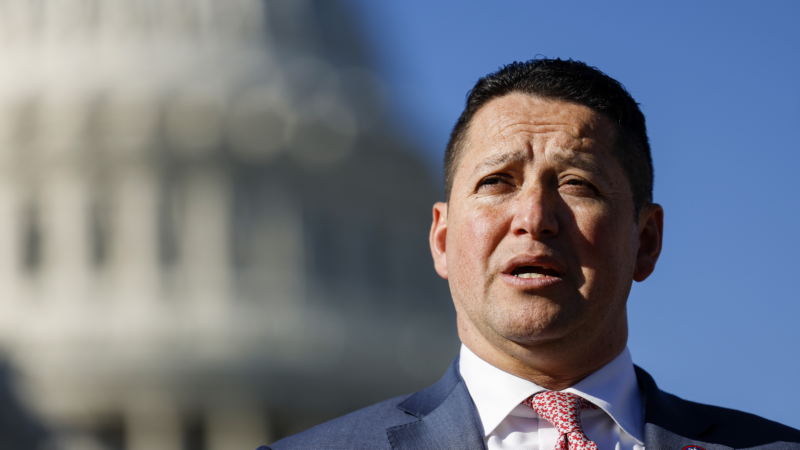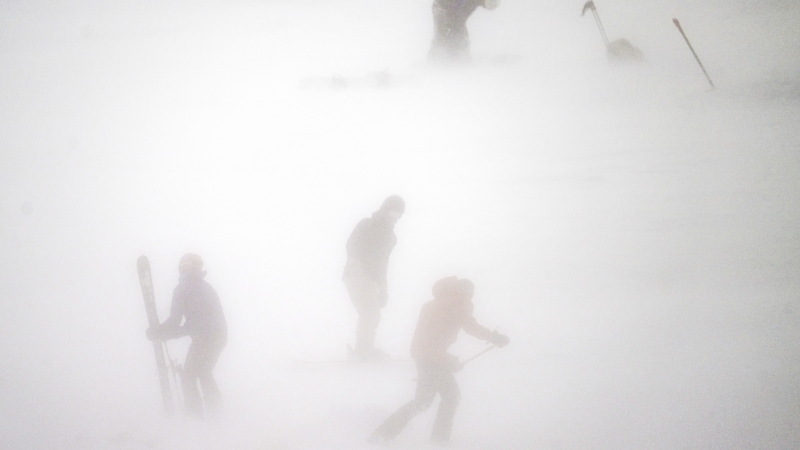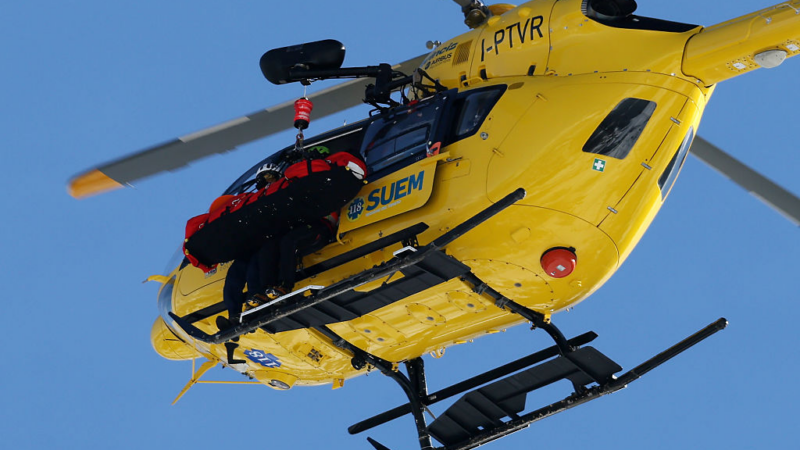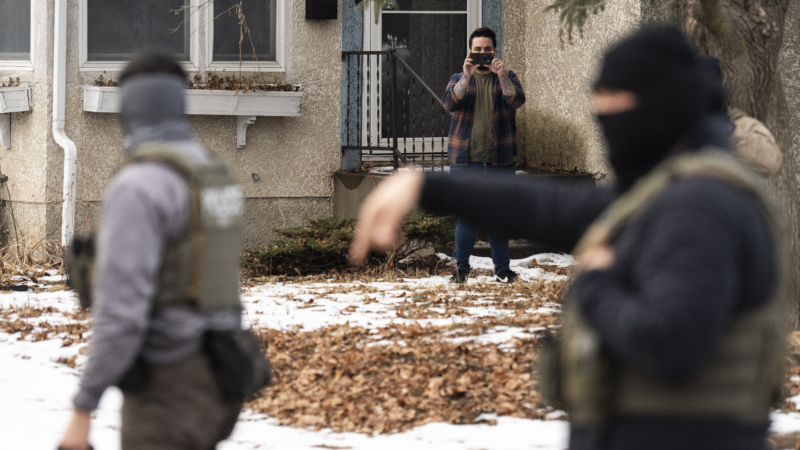Tensions escalate as Pakistan calls India’s operation ‘an act of war’
India hit multiple targets across Pakistan in the most widespread strikes in decades early Wednesday.
New Delhi described its operation as a response to a deadly attack in India-administered Kashmir on April 22, when gunmen killed at least 26 tourists and injured a dozen others. India argued the group that claimed responsibility was a proxy for the Pakistani military. Pakistan denies any connection.
Pakistani government called Wednesday’s strikes as “an act of war.” And according to The Associated Press, citing the Pakistani military, 31 people have been killed.
India’s military said the strikes, which occurred overnight Wednesday local time, as targeting “terrorist infrastructure.” It said in a statement the strikes were “focused, measured and non-escalatory in nature” and that no Pakistani military facilities were targeted. Later, Indian Col. Sofia Qureishi said in a news briefing “locations were so selected to avoid damage to civilian infrastructures and loss of any civilian lives.”
It appeared the deadliest strikes hit a mosque in the southern Pakistani town of Ahmedpur East. Those strikes killed 14 people, including members of the family of Masood Azhar, the chief of Jaish-e-Mohammed, a U.S.-designated terrorist group that has conducted deadly attacks in India in the past.
The United Nations Secretary-General António Guterres called for restraint from both countries. “The world cannot afford a military confrontation between India and Pakistan,” he said in a statement.
About half of the Indian strikes targeted locations in Pakistani-held Kashmir. India and Pakistan both administer parts of Kashmir, and both claim the entire territory for themselves.
Pakistan said one target was a hydropower dam on a river. That attack in particular raised hackles, because last month, India suspended its decades-old water treaty with Pakistan that divides six rivers between the two water-stressed countries. The suspension was part of a series of measures India announced following the militant attack in April. Pakistan’s representative to the U.N., Asim Iftikhar Ahmad, earlier said the treaty’s suspension posed “an existential threat to the people of Pakistan.”
In Kotli, a town in Pakistani-held Kashmir, the sound of multiple airstrikes sent students scattering from popular late-night food hubs. One projectile struck a house close to a mosque, which residents say is affiliated with the militant group Jaish-e-Mohammed. The strike killed a 19-year-old university student and her 12-year-old brother, according to Muhammad Nasrullah Khan, a medical official at the local hospital.

Other strikes landed in Pakistan’s Punjab province, including in a town called Murikde, some 30 miles from Lahore, the country’s second largest city. India has not struck that deep in Pakistan since 1971, said Michael Kugelman, an expert on the region who writes Foreign Policy’s South Asia brief. “What also stands out about these recent strikes is the scale and intensity of them,” he told NPR.
Indian authorities held dozens of emergency drills across the country to prepare its first responders for conflict. Volunteers rappelled from the top of a building as sirens went off and firecrackers erupted — apparently to imitate shelling in one drill in the Indian port city of Mumbai. Drills in the India’s capital New Delhi temporarily plunged the Parliament and several top government offices in darkness.
After the strikes, Pakistan’s most senior officials met and described India’s actions as “unprovoked, cowardly and unlawful act of war” in a statement released by the prime minister’s office. “Pakistan reserves the right to respond, in self-defense, at a time, place, and manner of its choosing to avenge the loss of innocent Pakistani lives and blatant violation of its sovereignty,” it said.
Pakistan’s military already appears stretched. It is fighting a Pakistani offshoot of the Taliban along its northwestern border. It is also battling an increasingly violent, and brazen insurgency in its western province of Baluchistan. Pakistan claims those separatists are backed by Indian intelligence. Just hours before the Indian strikes, Pakistan’s military said separatist fighters struck an army vehicle with an improvised landmine, killing 7 soldiers. “Nefarious designs of India and its proxies operating on Pakistani soil will be defeated,” the military statement said.
Praveen Donthi, senior analyst for India with International Crisis Group, said outside parties should have intervened more forcefully to prevent military strikes. “This should have been stopped before it escalated,” Donthi said.
While India has signaled that it does not seek an escalation, “the Pakistan establishment will be under tremendous pressure” to respond, Donthi said, because of the death toll and the widespread nature of the strikes. “I’m afraid if the international community doesn’t step in, especially the U.S., then we are only seeing the beginning of these escalatory strikes.”
Following the strikes, Secretary of State Marco Rubio said he was “monitoring the situation between India and Pakistan closely.” President Trump earlier told journalists that the attacks were “a shame.”
“I just hope that it ends very quickly,” he said.
Diaa Hadid reporting from Mumbai, India; Bilal Kuchay in Pampore, Indian-administered Kashmir; Betsy Joles in Lahore, Pakistan. NPR producer Omkar Khandekar in Mumbai contributed reporting.
Transcript:
A MARTÍNEZ, HOST:
Indians and Pakistanis had been waiting for – or dreading – this moment.
(SOUNDBITE OF MISSILE STRIKING)
MICHEL MARTIN, HOST:
India struck multiple targets across Pakistan in the most extensive strikes in more than 50 years. It comes after India blamed Pakistan for an attack that killed 26 people in late April. Pakistan denies any connection. Its military has retaliated by firing into parts of Indian-held Kashmir, and it claims it has downed five Indian aircraft. The Associated Press reports that more than 30 people were killed in Pakistan. India says three people were killed on their side.
MARTÍNEZ: On the line with us is NPR’s Diaa Hadid. She covers Pakistan and India from her base in Mumbai. Diaa, tell us about these strikes. They happened overnight there.
DIAA HADID, BYLINE: Yeah. And most people were sleeping, A, but a resident near one of the worst-hit places in southern Pakistan recorded this audio.
(SOUNDBITE OF MISSILE STRIKING)
UNIDENTIFIED PERSON: (Speaking Arabic).
HADID: And even in a nearby town, one resident said the strikes woke up his family. This is Ijaz Rao.
IJAZ RAO: My family wake up, and they say, something is – very strange is happening, that – not just one blast. There were a number of blasts. The windows were shaking.
MARTÍNEZ: Wow. So what kind of places was India targeting in Pakistan?
HADID: Well, India’s army says it struck militant training camps and what they call terror infrastructure. And many of those strikes were in Pakistani-held Kashmir. Kashmir is that Himalayan territory divided between India and Pakistan. It’s claimed by both, and it’s at the heart of nearly every conflict between the two countries. But Pakistan says the strikes mostly hit mosques and part of a hydropower dam. One prominent Pakistani militant says one of the strikes targeted his relatives and killed 14 people, including women and children. That was in a small town in southern Pakistan. And it’s really important to say here where these strikes took place. Some were deep in Pakistan. One was near the country’s second-largest city.
So here have a listen to Michael Kugelman. He writes the Foreign Policy’s weekly South Asia Brief, and he says this hasn’t happened in decades.
MICHAEL KUGELMAN: The airstrikes that India has launched into Pakistan are the deepest into Pakistani territory since 1971. What also stands out about these recent strikes is the scale and intensity of them.
HADID: And analysts I’ve spoken to say they were actually expecting India to hit hard.
MARTÍNEZ: Expecting them? Why were they expecting that?
HADID: Well, just because of the nature of the attack that triggered these renewed tensions. It happened on April 22, when gunmen attacked Indian tourists in a meadow. And it seems some of the gunmen targeted Hindu men. It was the deadliest attack against civilians in years. And the victims came from all over India, so it just really triggered widespread anger. But after the strikes, the Indian military said its response was measured, focused and nonescalatory. Analysts say those words signal that India is not interested in escalating this further.
MARTÍNEZ: Now, could all this maybe quiet down, or do folks there expect more military actions?
HADID: I guess the problem here is with strikes so deep in Pakistan, and with this death toll, Pakistan may feel like it must respond to show people that its army isn’t weak. So analyst Praveen Donthi with the International Crisis Group says other countries have to step in.
PRAVEEN DONTHI: I’m afraid, if the international community doesn’t step in, especially the U.S., then we’re only seeing the beginning of these escalatory strikes.
HADID: For now, President Trump has said he hopes this ends quickly, and Secretary of State Marco Rubio says he’s closely monitoring the situation.
MARTÍNEZ: That’s NPR’s Diaa Hadid in Mumbai. Thank you very much.
HADID: You’re welcome.
GOP Rep. Tony Gonzales faces pressure from party over affair allegations
The Texas Republican is facing calls from fellow House Republicans to resign, following allegations of an affair with a staffer who later died by suicide.
In pictures: Winter storm slams the east coast
Photos of cities in Connecticut, New York, New Jersey and Massachusetts as they cope with a powerful winter storm.
The FDA creates a quicker path for gene therapies
The Food and Drug Administration aims to evaluate treatments for rare diseases based on plausible evidence that they would work — without requiring a clinical trial first.
BAFTAs apologize after guest with Tourette syndrome uses racial slur during ceremony
A man with Tourette syndrome shouted a racial slur and other offensive remarks during the BAFTA awards ceremony Sunday. The BBC did not edit out his outbursts in its delayed broadcast.
‘Everything was in pieces:’ Lindsey Vonn describes grueling surgery on broken leg
In a recent video, the Olympic skier credits her surgeon with saving her leg from potential amputation.
A new lawsuit alleges DHS illegally tracked and intimidated observers
Observers watching federal immigration enforcement in Maine who were told by agents they were "domestic terrorists" and would be added to a "database" or "watchlist" are now part of a new federal class action lawsuit.

